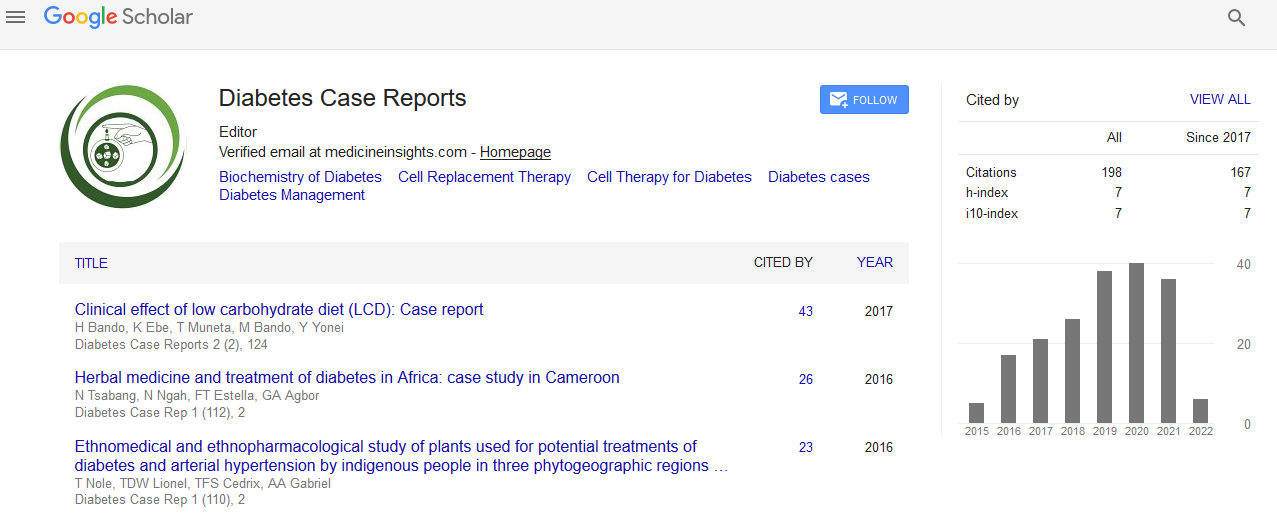Indexed In
- RefSeek
- Hamdard University
- EBSCO A-Z
- Euro Pub
- Google Scholar
Useful Links
Share This Page
Journal Flyer

Open Access Journals
- Agri and Aquaculture
- Biochemistry
- Bioinformatics & Systems Biology
- Business & Management
- Chemistry
- Clinical Sciences
- Engineering
- Food & Nutrition
- General Science
- Genetics & Molecular Biology
- Immunology & Microbiology
- Medical Sciences
- Neuroscience & Psychology
- Nursing & Health Care
- Pharmaceutical Sciences
Abstract
Lower Cardiovascular Risk with Diabetic Drugs: A Paradigm Shift from Glucocentricity to Cardio Protectiveness
Cardiovascular disease is the leading cause of mortality and morbidity among diabetic patients. There by reducing cardiovascular risk is a major focus of diabetic management. International Diabetes Federation (IDF) in 2014 has projected that 592 million population will be affected by diabetes by the year 2035 from the present status of 387 million out of which 90% will have type 2 diabetes. The prevalence of diabetes and cardiovascular disease is growing exponentially. This rising tide of diabetes around the globe, the double jeopardy of diabetes and cardiovascular disease is infact a time bomb which may result in an explosion of these cardiovascular complications unless aggressive management of diabetes is done. While tight glycaemic control decrease the onset of microvascular complications evidence that it decreases macrovascular complications is limited. Lowering blood glucose levels in patients with diabetes mellitus is a too simplistic goal. The key component being how to lower blood sugar and how much. Diabetes drugs, even within the same “class” yield dramatically different cardiovascular outcomes. Infact a number of diabetic drugs may actually increase the risk of major cardiovascular events posing a challenge for the clinicians to select drugs for patients with type 2 diabetes mellitus. Thus, the treatment of type 2 diabetes needs to be invidualized and complex in which targeting cardiovascular risk factor is an important component. After the updated publication by Nissen and Wolski about the cardiovascular adverse outcomes of rosiglitazone both FDA (Food and Drug Administration) and European medicine agency (EMA) made it mandatory to have CVOT (Cardiovascular outcome trial) as an integral part of drug approval process. Therefore, the need of the hour is to evaluate anti diabetic drugs in relation to cardiovascular risk.
This review discusses the available evidence regarding cardiovascular safety of commonly used oral anti-diabetic medications.

